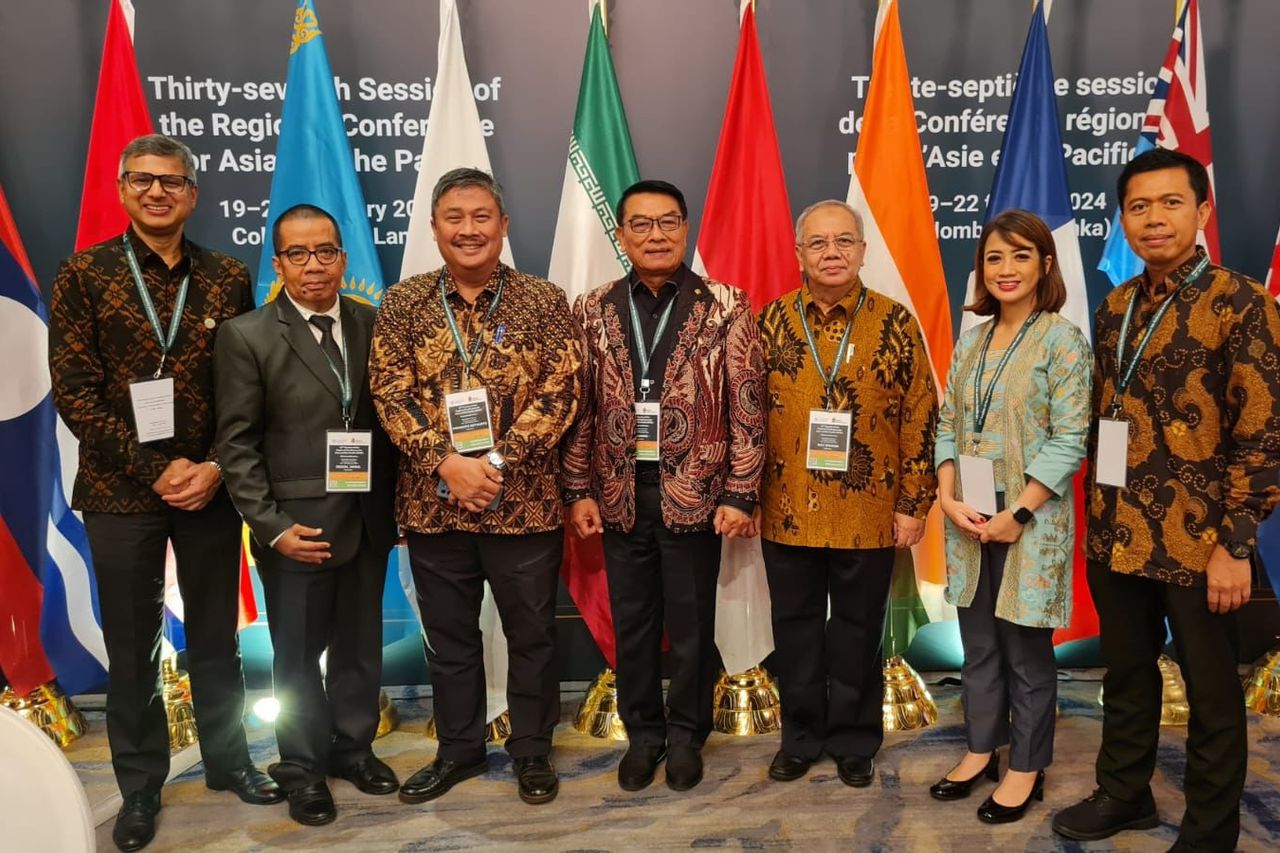371 Million People In Asia Pacific Experience Malnutrition, Moeldoko Gagas Builds Food Security At The FAO Forum

JAKARTA - As many as 371 million people in Asia Pacific are malnourished, this is exacerbated by the increase in food prices. The Presidential Chief of Staff, Moeldoko, conveyed the idea of farmer regeneration as a solution to build food security.
In his presentation, Moeldoko assessed that climate change, economic crisis, and global supply uncertainty had had a very bad impact on the Asia Pacific region, including its impact on agricultural production.
The phenomenon was discussed at the 37th Asian Pacific Ministerial Meeting (APRC) in Colombo, Sri Lanka, organized by the Food and Agriculture Organization (FAO) on 19-22 February 2024.
In this meeting, Indonesia played a strategic role in encouraging the transformation of food and agricultural systems in the Asia Pacific region. This can be seen from how Indonesia was asked to be a speaker in 7 sessions out of a total of 10 sessions at the meeting.
Indonesia shares learning and encourages new solutions to build food security together. Among them, we propose the establishment of a training center for the regeneration of farmers in the Asia Pacific region in Indonesia," explained Moeldoko on the APRC's main agenda in Colombo, Sri Lanka, Wednesday, February 21.
The Asia Pacific FAO Regional Conference (APRC) is an official forum attended by the Minister of Agriculture and top officials of FAO member countries to discuss and outline food problems in the region as well as build cooperation to strengthen priorities and solutions related to food and agriculture. In this meeting, it also promoted regional coherence in global policies and political issues.
On the same occasion, Plt. Secretary General of the Ministry of Agriculture, Prihasto Setyanto also discussed the National and Regional Priorities. He conveyed Indonesia's commitment to encouraging the acceleration of a strong and sustainable agricultural food system as well as efforts to fulfill food availability for 278 million Indonesians.
He continued that for the short-term handling of the impact of the crisis, the Government prioritized the provision of safety net programs for vulnerable communities, especially small-scale farmers and fishermen. Meanwhile, in the long term, concrete efforts by the Government are carried out through strengthening and expanding national food production centers, especially optimizing the management of existing swamplands and expanding and modernizing agriculture through mechanization and digitization, to efforts to regenerate farmers and strengthen the role of millennial farmers.
"Indonesia also proposes developing a national banking system with the support of modern technology, we also invite global collaboration on this initiative," said Prihasto.
In addition, the Deputy for Food and Agribusiness Coordination of the Coordinating Ministry for Economic Affairs, Dida Gardera conveyed various efforts made by the Indonesian Government in anticipating food saving. He explained the importance of Science, Technology and Information (STI) to achieve SDGs zero hunter.
"To anticipate food rescue, we can do this by reducing food loss and food waste. Including the use of digital in practice, for this reason, the Government of Indonesia supports the Digital Village Initiative program," he said.
Meanwhile, the Head of the Foreign Cooperation Bureau of the Ministry of Agriculture and Delegations from the Ministry of Foreign Affairs will also hold a bilateral meeting with the Minister of Agriculture of Vietnam as a follow-up to the visit of the President of the Republic of Indonesia to Vietnam in January 2024 to discuss increasing cooperation and investment related to the food and agricultural sector, including discussing halal aspects in Indonesia.
Separately, FAO Representatives in Indonesia and Timor Leste, Rajendra Aryal said Indonesia's position is increasingly strategic in the world food issue. This can be seen from how Indonesia was asked to share experiences and solutions in seven ministerial meetings out of a total of 10 existing meetings.
"We are actively collaborating with the Indonesian government and local communities to increase Indonesia's agricultural sector against crises such as climate change," he said.
SEE ALSO:
"Indonesia's strategic participation in this conference is important to help guide FAO's work in Indonesia and the Asia-Pacific region to achieve the same goal, reaching the SDGs by 2030," added Rajendra.
In the last two years since the pandemic, food conditions in the Asia-Pacific region have experienced setbacks in efforts to combat hunger. So it is very important to transform food systems in this area so that it becomes more efficient, inclusive, resilient, and sustainable.
